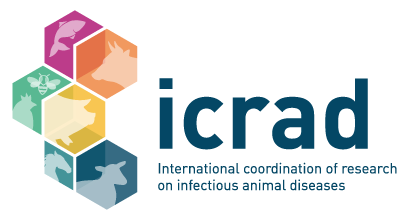Project details
Acronym: NanoZoo
Researcher: Dr. Catherine WERTS
Countries: France, Argentina, United Kingdom, Lithuania, other

Project Summary
The “One Health” concept recognizes that human, animal, and environment health are closely interrelated. Leptospira interrogans are the causative bacterial agent of leptospirosis, an emerging zoonotic disease affecting humans and animals, worldwide. Pathogenic leptospires present in the environment can infect a broad range of hosts and the disease may appear as an acute, even fatal infection in accidental hosts, such as humans or livestock, or progress into a chronic, mainly asymptomatic infection in its natural hosts, such as mice and rats.
In cattle, leptospirosis is responsible for high economic losses due to reduction in both, dairy and beef industry, and to high abortion rates.To improve on this, it is imperative to understand the innate immune responses elicited in different hosts, as this is key to understand the diverse disease outcomes seen in the different hosts. Many immunological experiments conducted in mice have allowed the understanding of some aspects of the immune responses during leptospirosis. However, our recent work has shown clear differences in the response seen in other mammalian hosts such as human and cattle. In this proposal we aim to apply a comparative analysis of the innate immune responses elicited by macrophages from divergent hosts such as bovines, pigs, mice, hamsters, and humans upon infection with various zoonotic Leptospira strains that were responsible for distinct outcomes of disease. The goal of this project will be to understand differential and specific immunological processes and pathways. More specifically, we aim to compare some Toll-like receptors recognition of membrane components of leptospires, using structural, biochemical, genomic, immunological, high content screening confocal microscopy and computational modelling approaches. This project should help to better understand the innate immune mechanisms driving host specificities of leptospirosis, and accordingly tailor host directed intervention strategies.

